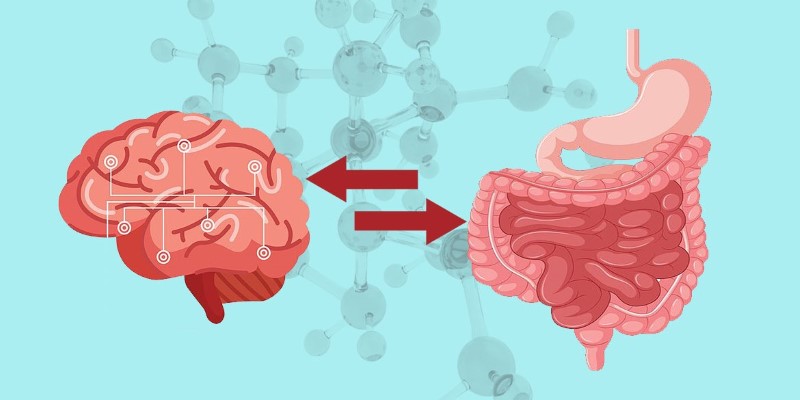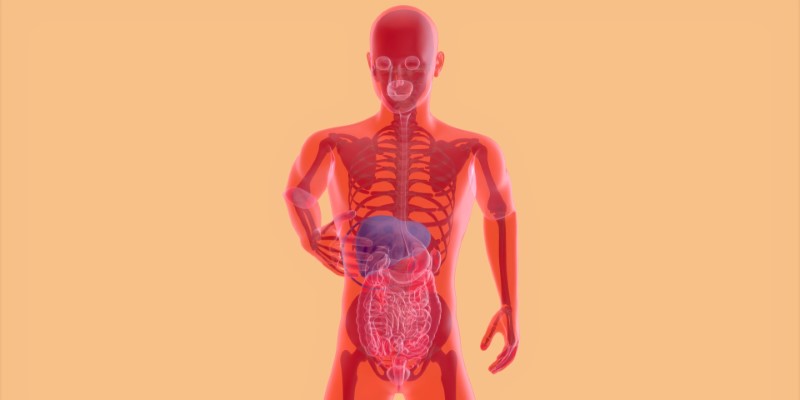How Digestive Health Affects Your Mental Well-Being
The connection between the gut and the brain is more profound than many realize. While it's easy to see digestion as a separate process, recent research highlights a fascinating link between digestive health and mental well-being. In this article, we'll delve into how your gut influences your mind, why this connection matters, and how you can foster a healthier relationship between the two.
Understanding The Gut-Brain Connection
The gut-brain relationship is often called the "gut-brain axis," a two-way communication network that links your digestive and central nervous systems. This communication occurs through a combination of nerves, hormones, and biochemicals, creating a complex and dynamic connection between these two seemingly separate organs.
The primary highway for this communication is the vagus nerve, which runs from the brain to the abdomen. It acts as a messenger, allowing signals to travel back and forth. This pathway means that changes in your gut can impact your mental state, and likewise, shifts in your mental health can influence digestive functions.

The Role Of Gut Microbiota In Mental Health
One of the most critical aspects of the gut-brain connection involves the gut microbiota—a vast community of trillions of bacteria and microorganisms living in your digestive tract. These tiny residents are essential in maintaining your health, from aiding digestion to supporting the immune system. But what's even more remarkable is their impact on your mental health.
Gut bacteria produce neurotransmitters such as serotonin, dopamine, and gamma-aminobutyric acid (GABA), which are chemicals that regulate mood, anxiety, and stress levels. About 90% of serotonin, often called the "feel-good" hormone, is produced in the gut. When the balance of these bacteria is disrupted, it can reduce the production of these critical neurotransmitters, directly affecting mood and overall mental health.

How Digestive Health Influences Mental Well-Being
The influence of gut health on mental well-being is multifaceted. Here’s a closer look at the different ways your digestive system impacts your brain:
Inflammation And Mental Health
Chronic inflammation is a significant player in gut health and mental well-being. Poor digestive health often leads to an inflamed gut lining, which can cause the release of pro-inflammatory cytokines. These inflammatory molecules can travel to the brain, contributing to symptoms of depression and anxiety.
Recent studies suggest that conditions such as irritable bowel syndrome (IBS), leaky gut, and other digestive disorders are linked with increased levels of inflammation, which may exacerbate or even trigger mental health disorders. Addressing inflammation through diet and lifestyle changes can significantly improve gut health and mental well-being.
The Impact Of Stress On Gut Function
Stress has a profound impact on the digestive system. When you're stressed, your body enters a "fight or flight" mode, slowing digestion, reducing blood flow to the gut, and altering the balance of gut bacteria. This response can cause symptoms like stomach pain, bloating, and changes in bowel habits.
Over time, chronic stress can disrupt the gut microbiome, increasing the likelihood of digestive disorders such as IBS or even contributing to the development of conditions like gastroesophageal reflux disease (GERD). Conversely, an unhealthy gut can send distress signals to the brain, increasing feelings of anxiety and stress and creating a vicious cycle between gut health and mental well-being.

Common Digestive Issues And Their Mental Health Impact
Several digestive disorders are known to have a direct impact on mental health. Understanding these conditions can help us better appreciate the importance of gut health:
Irritable Bowel Syndrome (IBS) And Mental Health
IBS is a common digestive disorder characterized by symptoms such as abdominal pain, bloating, and altered bowel habits. It is often accompanied by mental health challenges, particularly anxiety and depression. Research indicates that up to 60% of people with IBS also suffer from psychological symptoms, highlighting the vital link between gut health and mental well-being.
The connection works both ways: psychological stress can worsen IBS symptoms, while digestive discomfort can increase anxiety and depression, further emphasizing the gut-brain axis.
Leaky Gut Syndrome And Its Psychological Effects
Leaky gut syndrome, or increased intestinal permeability, occurs when the gut lining becomes damaged, allowing harmful substances to pass through the bloodstream. This condition can trigger an immune response and inflammation, both of which have been linked to mood disorders and cognitive dysfunction. Individuals with leaky gut often report symptoms such as brain fog, fatigue, and mood swings, illustrating how gut health directly influences mental clarity and emotional stability.
Gastroesophageal Reflux Disease (Gerd) And Anxiety
GERD, characterized by chronic acid reflux, is another digestive condition that can significantly affect mental health. Many people with GERD experience high levels of anxiety, which can exacerbate reflux symptoms, creating a feedback loop between digestive discomfort and mental distress.

The Role Of Diet In The Gut-Mental Health Connection
Diet plays a pivotal role in maintaining gut health and, by extension, mental well-being. What we eat not only influences the composition of our gut microbiota but also affects the production of neurotransmitters that regulate our mood.
The Importance Of A Fiber-Rich Diet
Fibre is essential for gut health because it feeds the beneficial bacteria in your gut, promoting a balanced microbiome. Fibre-rich foods, such as fruits, vegetables, whole grains, and legumes, help prevent inflammation and support regular bowel movements. By nurturing gut health, a high-fibre diet contributes to improved mental well-being.
Probiotics And Prebiotics For Mental Health
Probiotics are live bacteria that provide health benefits when consumed, while prebiotics are fibres that feed these beneficial bacteria. Including foods rich in probiotics, like yoghurt, kefir, sauerkraut, and kimchi, along with prebiotic-rich foods such as garlic, onions, and bananas, can enhance gut health and improve mood regulation.
The Impact Of Sugar And Processed Foods
A diet high in sugar and processed foods can negatively affect gut health by promoting the growth of harmful bacteria. These foods can cause inflammation and alter the balance of the gut microbiome, potentially contributing to symptoms of anxiety and depression. Reducing sugar intake and focusing on whole, nutrient-dense foods can help maintain a healthy gut-brain connection.

Conclusion
The intricate link between digestive health and mental well-being underscores the importance of caring for your gut as part of a holistic approach to health. Fostering a healthy gut through a balanced diet, stress management, regular exercise, and proper sleep can significantly enhance your mental well-being. Understanding and nurturing the gut-brain connection empowers us to take proactive steps towards a happier, healthier life.




